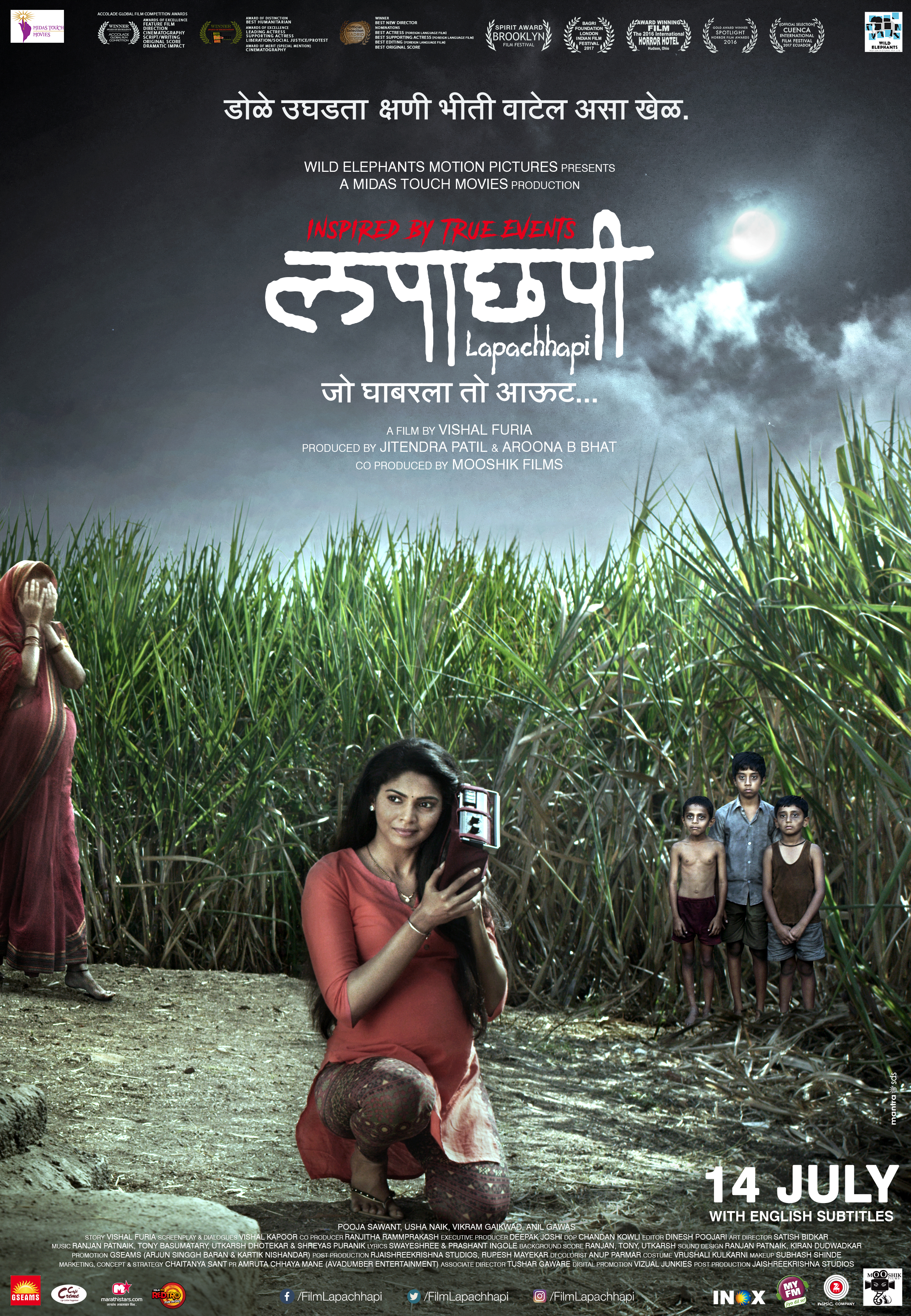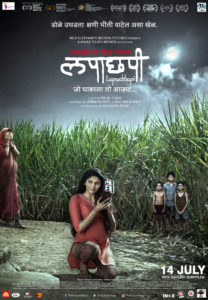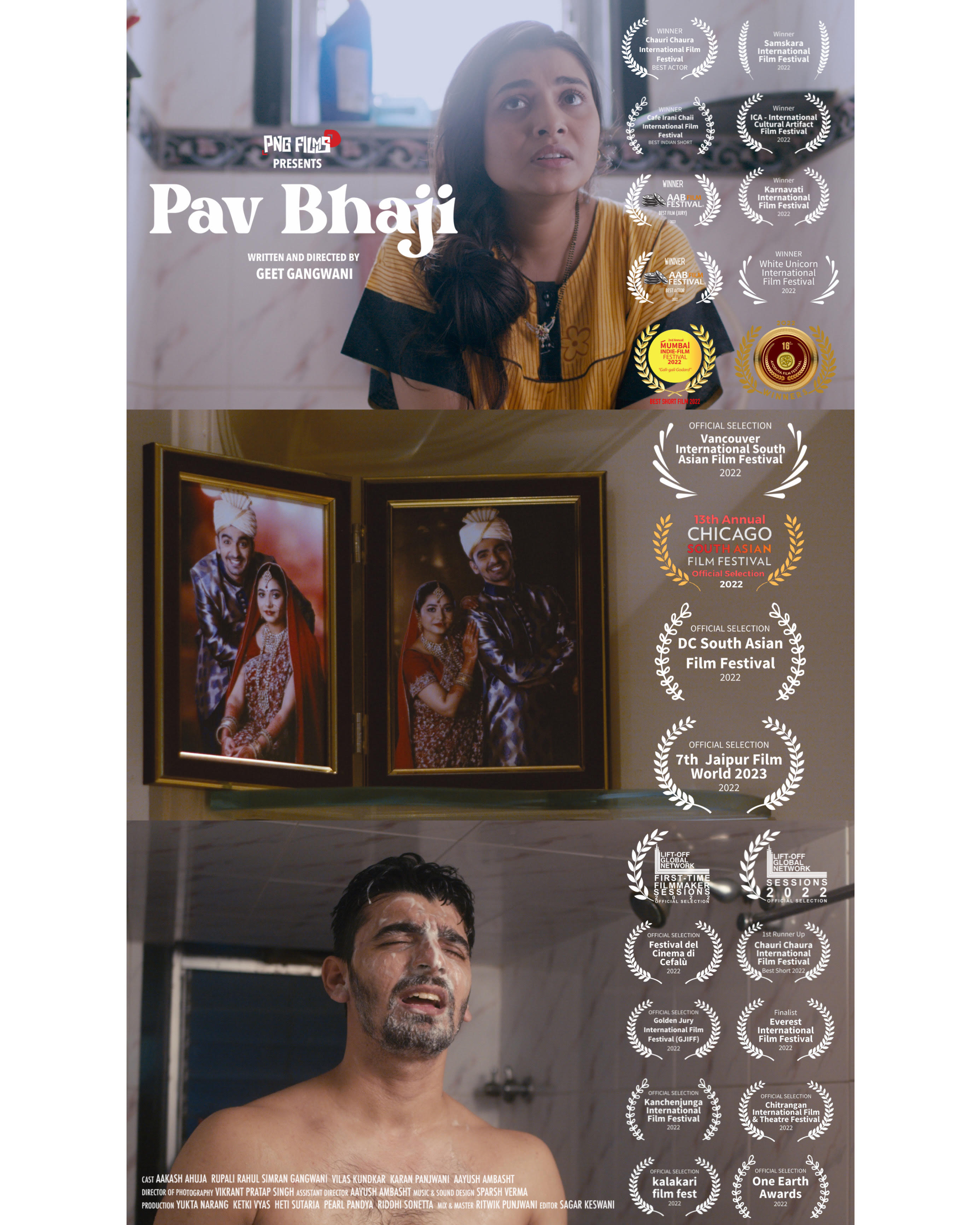
India Independent Film Review “Lapachhapi (Hide & Seek)”
WATCH THE TRAILER HERE
First, the Recap:
Be wary, for something wicked this way comes. While we often fear the dark, wondering what unseen mysteries and terrors might await us within the shadows to steal us away, there remains one sobering truth that, sometimes, the greatest evil isn’t fantastical, but human. For one young couple, Neha (Pooja Sawant) and Tushar (Vikram Gaikwad), the time has come to abscond to a remote village away from their usual home after Tushar runs afoul of some bad business decisions and those associated with them. Thanks to their friend Bhaurao (Anil Gawas) and his wife Tulsi (Usha Naik), the pair are provided a new place to lay low in the middle of vast fields, isolated, but safe.
Yet, Neha, who is now 8 months pregnant, cannot help but feel a sense of foreboding in the old house, an almost haunting feeling she cannot shake. Even as Tulsi takes the mother-to-be under her wing and shares certain history about the area, initially subtle but still ominous occurrences start to unfold, becoming more and more unsettling to Neha. The presence of another village resident, Laxmi (Dhanashree Khandkar), and three wraith-like children, who seem to appear and disappear at will, also signal a warning of an old curse which is coming back to claim Neha’s as yet unborn baby. Unable to flee, and with the true horror of what has and is transpiring revealed, Neha’s bid for her and her baby’s survival begins, now knowing not all nightmares are confined to the dark.
Next, my Mind:
Utilizing a style of horror that relies on eerie settings, chilling omens, haunting encounters when you least expect them, and ultimately a deft combination of both the supernatural and, more shockingly, real world terror founded on an age-old practice in India, writer/director Vishal Furia’s 2-hour independent feature film certainly delivers in multiple, truly frightening ways. It’s the overall execution of the spookier elements and their placement throughout the film that makes this narrative soar, much less that it proves sinister forces don’t always move only in the night, and are not always uncanny in nature. The sweeping sugarcane fields and their maze of paths works just as effectively as corn fields do in American-centered horror films, as there’s just something inherently creepy about being totally surrounded by high stalks in which anything could be hiding. The anticipation of something emerging from them, day or night, greatly helps build up the unnatural atmosphere being created, and it works on you from a psychological standpoint, the mind racing, which only makes the actual horror elements and “jump” moments even more potent. A wonderfully orchestrated music score helps emphasize the tension here as well.
Sawant serves up a fantastic performance as Neha, a young mother-to-be whose husband’s work-related troubles land them in the mess they end up in. Only wanting to ensure their baby’s well-being, taking up the offer to flee to the remote village, then to an solitary house in the fields, seems like a superb option, until after staying there for several days, Tushar leaving, and then the real horrifying truths coming to light. Neha fights for her sanity, her life, and the life of her baby with a tenacity that begins to wear down to the point of questioning whether she can weather the storm. It’s a nuanced and bold enactment that Sawant delivers wonderfully. Naik likewise provides an understated, yet energetic rendition as Tulsi, a older woman with an overtly mothering personality whose interest in Neha and her baby goes from innocent to suspect in very short order. The calm demeanor in which she conducts herself only lends to the air of freakishness about her, and this only gets amplified when the village’s terrifying secret is made known. It’s the perfect style of delivery for the role based on her character’s part in the story, and Naik takes full advantage of it on all counts.
Supporting turns are also solid from Gaikwad as Neha’s troubled but doting husband Tushar, whose support of his wife is so sincere, yet has more than his fair share of other secrets, (Gawas) as Bhaurao, Tulsi’s husband whose knowledge and support of his village’s practices is disturbing once disclosed, (Khandkar) as Laxmi, a young woman from the village whose past there plays a key part in the greater story, and (Aparna Ambawane) as Kaveri, a central catalyst for the film’s premise as well and focal to the supernatural aspects presented. In total, “Lapachhapi (Hide & Seek)” is a complete departure from the norm in India with not only it’s overall horror film foundation, but in using it to raise awareness about an actual, true-to-life horror story that occurs in India to this day, all in the name of tradition. As impactful as this film is for entertainment (and for now ruining any chance of listening to a song on an old style cassette player ever again!), we can only hope its greater message will reverberate through a nation and promote change.
As always, this is all for your consideration and comment. Until next time, thank you for reading!




